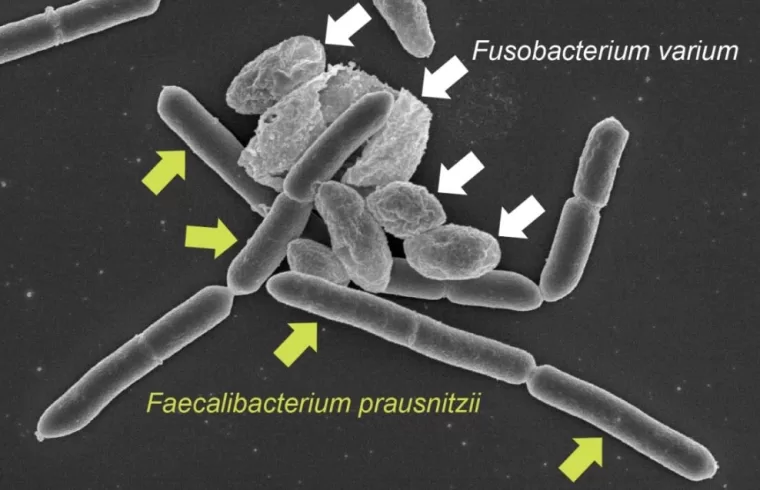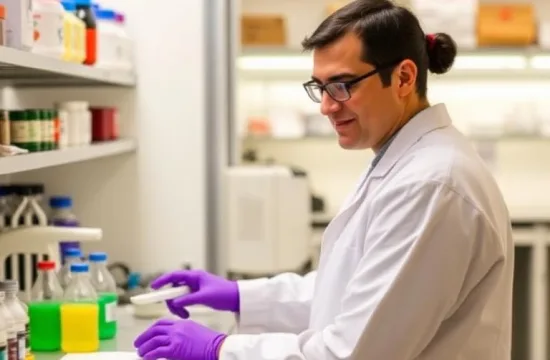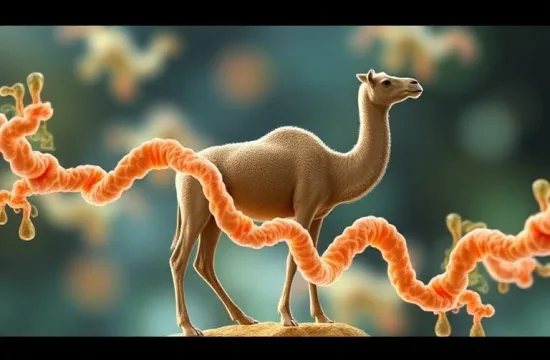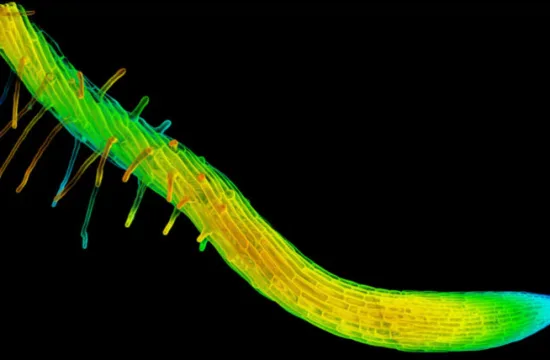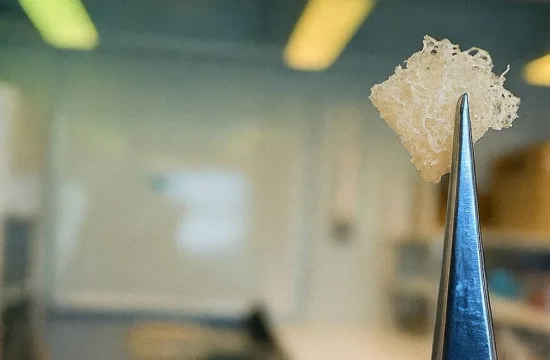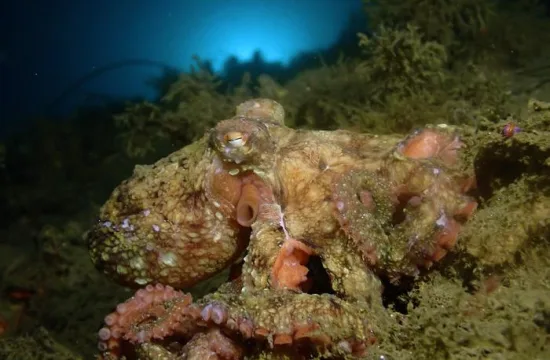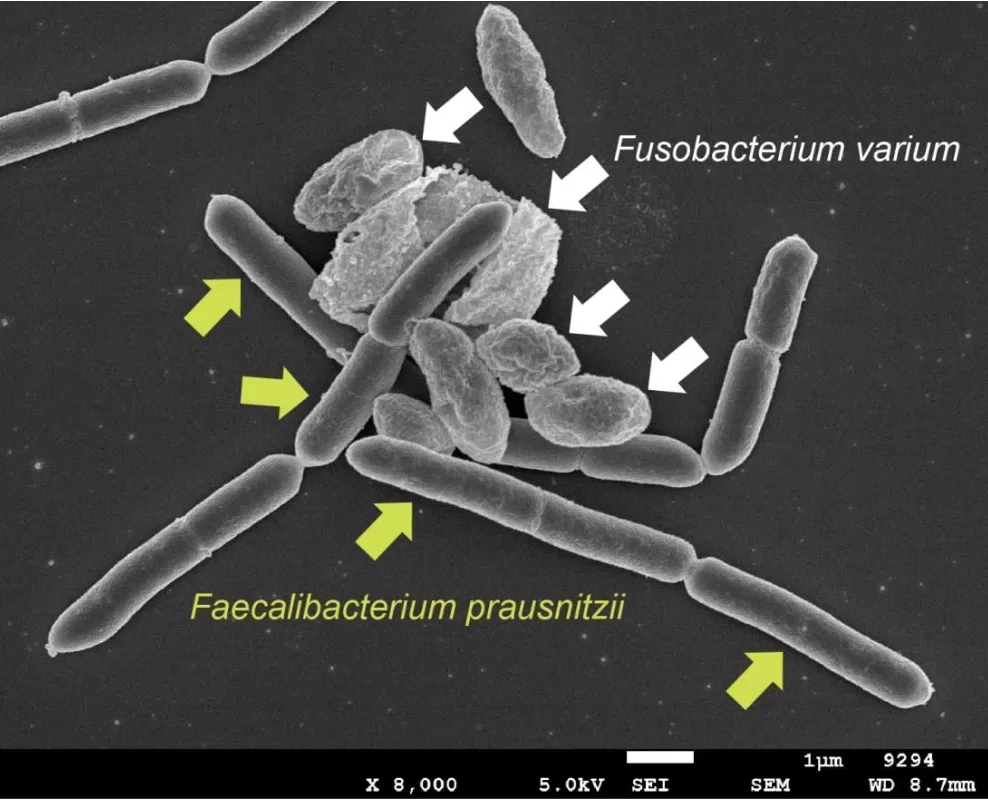
Osaka, Japan — Intestinal bacteria are important for human health, as they help digest food and regulate immune function.
In recent years, it has become clear that gut microbiota dysbiosis, an imbalance in the types and composition of intestinal bacteria, is associated with digestive disorders and other diseases.
However, the mechanism by which bacteria interact in the intestine to maintain the microbiota balance remains unclear.
A research group led by Associate Professor Koji Hosomi at Osaka Metropolitan University’s Graduate School of Veterinary Science studied two bacteria: Fusobacteriumvarium (F. varium), an oral and intestinal bacterium linked to inflammation and colon cancer, and Faecalibacteriumprausnitzii (F. prausnitzii), an intestinal bacterium that produces butyrate, a beneficial compound for health.
The research team used stool samples from 236 participants. The team then analyzed the interactions between these bacteria using next-generation sequencing (NGS) and mass spectrometry.
The results revealed that F. prausnitzii inhibits the growth of F. varium. This effect is due to the increased acidity and amount of β-hydroxybutyric acid caused by F. prausnitzii. In contrast, F. varium promotes the growth of F. prausnitzii. This interaction is likely to occur through direct contact between these bacteria.
“Further clarification of these relationships may unlock new therapeutic strategies for gut health and disease prevention,” said Professor Hosomi. He also emphasized the potential for developing functional foods and supplements to support beneficial bacteria.
The study was published in Microbiome.

